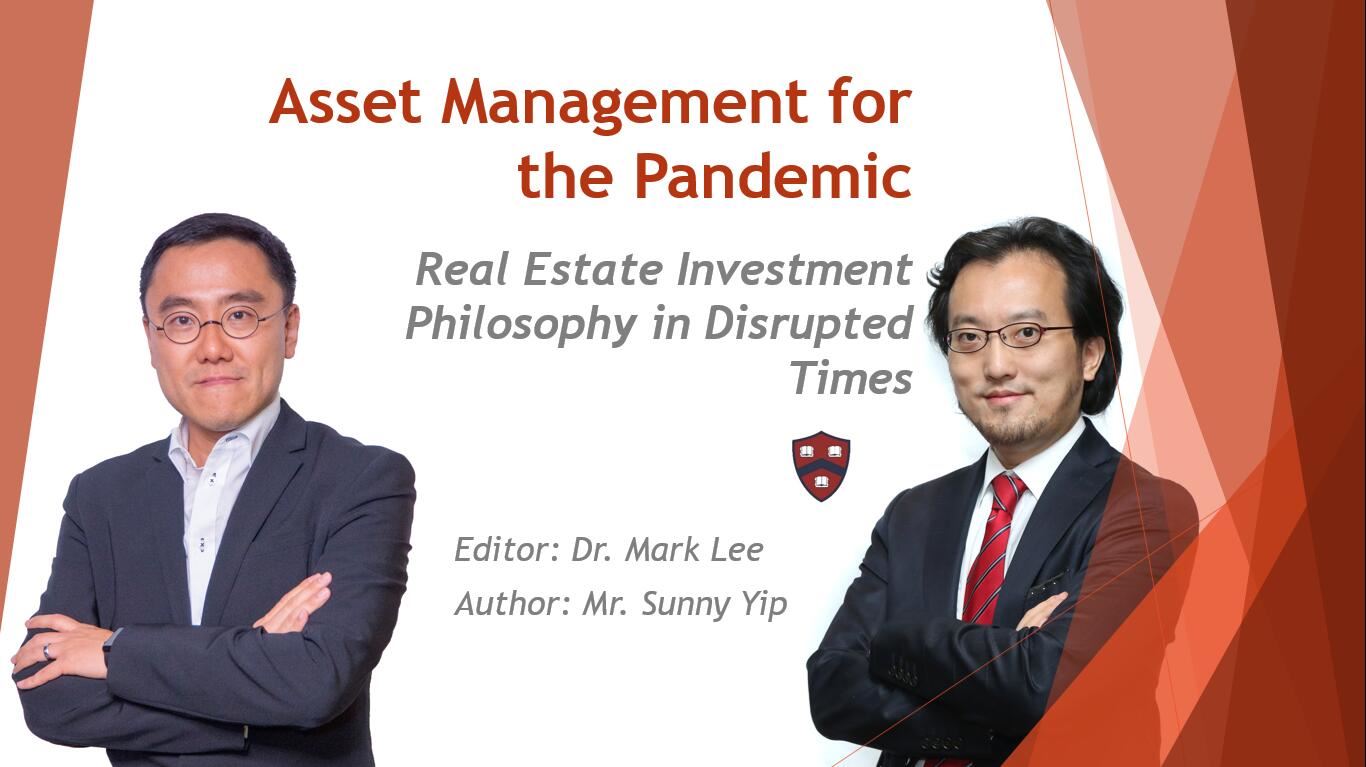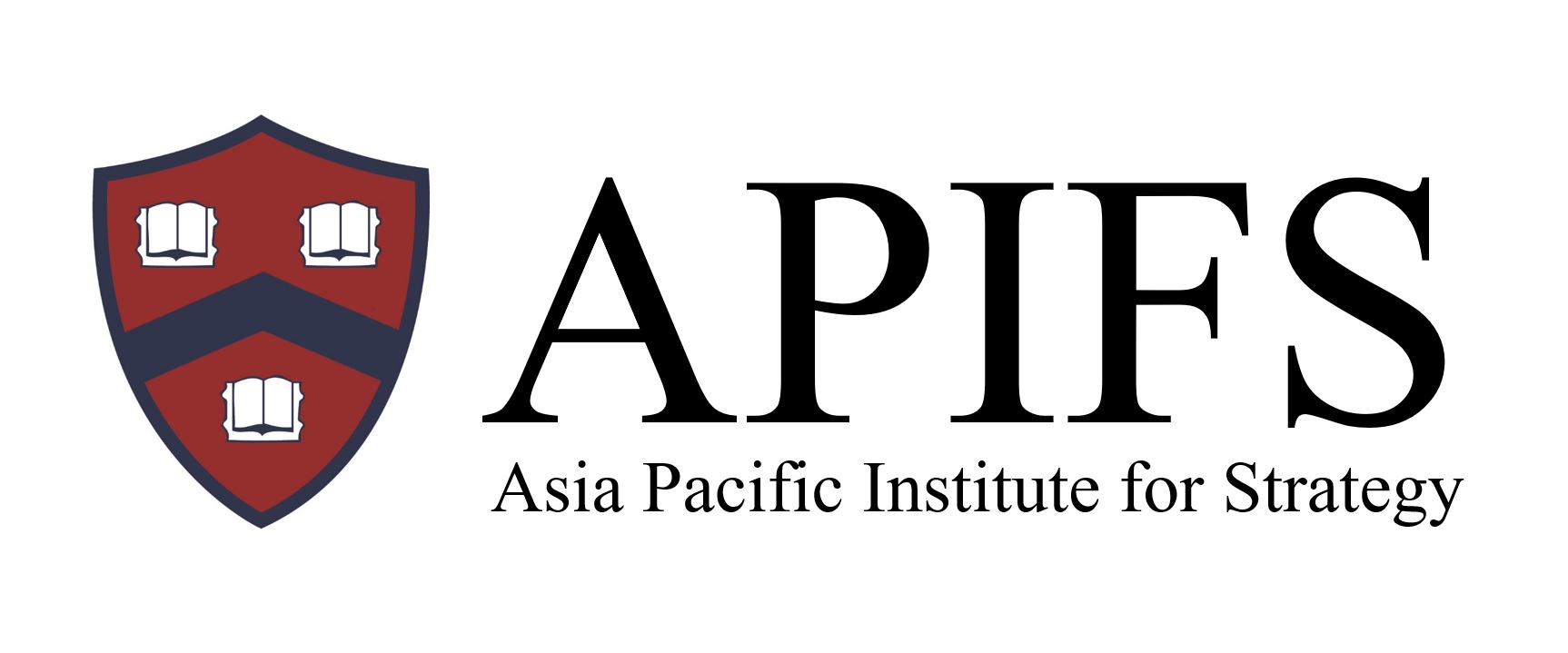
[Asset Management for the Pandemic] Real Estate Investment Philosophy in Disrupted Times
Mr. Sunny Yip
- COO & Executive Director, Rykadan Capital Limited
- Fellow of Asset Management Industry, Asia Pacific Institute for Strategy
We are living in an era of rapid transformation with changes and uncertainties gripping populations worldwide. The novel coronavirus pandemic has compounded Hong Kong’s recent situation, notably the social event since last summer, the lagging effects of US-China trade tension and pressures on the major financial sectors.
Real estate as an asset class has always been attractive to institutional funds and individual investors. Conventional wisdom is that real estate properties, as a hard asset, is particularly advantageous for portfolio diversification because it can serve as a hedge against inflation, a stable yield return and an opportunity for equity parking. While the novel coronavirus outbreak has been driving people to busily stock their pantries, it is also a good time for us to re-think about our investment strategy in real estates.
Risk-Mitigated Trends in Real Estate Investment
According to a study conducted by McKinsey & Company in 2017, pension and mutual funds were planning ahead in real-estate investment and two risk-mitigated trends were observed.
(i) Direct-Investment in Core-Plus or Value-add Opportunities
The first observed trend is that institutional funds are building a direct-investment capability. With direct-investment capability, investors could tap into “core-plus” or “value-add” opportunities where higher yield could be achieved by acquiring high-quality assets with minor upgrade requirements; or assets with reposition or redevelopment potential to maximize the value of the asset.
(ii) Non-traditional Asset Classes
The second emerging trend observed is investing in non-traditional, GDP-delinked asset classes. We noticed such momentum recently towards non-traditional asset classes such as student housing, senior living facilities or assisted-living communities. The advantage of diversifying into these niched property sectors is obvious. These longer-leased, GDP-delinked properties normally generate lower volatility across a market cycle than those traditional property types like retails or offices.
Diversification is the key
In addition to the above trends in diversifying the asset class, a geographically diversified portfolio would also help to eliminate exposure risk to a particular market, region or country, and to mitigate the cyclicality of the portfolio. A country that performs well one year might be a poor performer the next. This is particularly true for the case of Hong Kong as we are facing various headwinds before the novel coronavirus outbreak globally.
Opportunities under the pandemic
Given real estate is a longer-term asset class, as the novel coronavirus settles, the current market correction could provide a great opportunity to investors.
(i) Strong Dollar Environment
At the present time of global uncertainty due to the current pandemic, the value of U.S. dollar rose compared to most major currencies. This poses an attractive opportunity for non-USD denominated investments. Nevertheless, foreign exchange movements can have a substantial impact on the performance of international real estate investments. Given the potential impact that currency movements can have, investors may have to carefully consider how they manage the additional risk that comes with cross-border investments and prepare for the challenges of managing foreign currency exposures.
(ii) Distressed Property
Distressed situations are expected to emerge as owners face high degree of operational or financial challenges under the pandemic. Owners who face with vacancy and cash flow issues may be forced to sell. Distressed situation presents attractive valuations for investors. Outstanding risk adjusted returns can be generated due to the differential between the price of assets that are distressed, undermanaged, in complicated situations and/or portfolios, versus pricing for stabilized, well‐managed properties.
"If you feel like you are losing everything, remember that trees lose their leaves every year, and they still stand tall and wait for better days to come."
Rykadan Capital Limited
Rykadan Capital Limited has adopted a risk-mitigated approach with property investments spanning across Hong Kong, US and UK. We believe that diversification among different asset classes and geographic locations matters and investors should stay vigilant and be flexible when looking for investment opportunities. With our recently obtained SFC Type 9 (Asset Management) License, we will continue to look for valuable investments for our investors.
Related Articles:
[Crisis Management for the Pandemic]Portfolio Management and Best Practice: The Rule of 30%
[Change Mgt for the Pandemic] 6 Tactics and Pitfalls to Win People's Hearts to Change Effectively
[Crisis Management for the Pandemic]Trend and Crisis Management:The Worst of Time, The Best of Time
《Tai Hing 3.0》Foreword by Dr. Mark Lee:Upgraded Strategy, Advanced Enterprise
[CEO Insights]Crystal Interview:Management Philosophy for an Enterprise from Zero to Billions
[CEO Coaching]Octopus Interview: Innovative Thinking Strategy
[CEO Coaching]BEA Interview: Development Opportunities for Hong Kong Banking Industry
[CEO Coaching]Pfizer Hong Kong Exclusive Interview:What makes a successful enterprise?
[CEO Coaching]Ericsson (HK) Limited Interview:Would Hong Kong lose its competitive edge in 5G era?
Australia: +61 3 9015 4991
Singapore: +65 6850 5067
Hong Kong: +852 3970 1828
Email: cs@apifs.net
Asia Pacific Institute for Strategy (C) 2026
